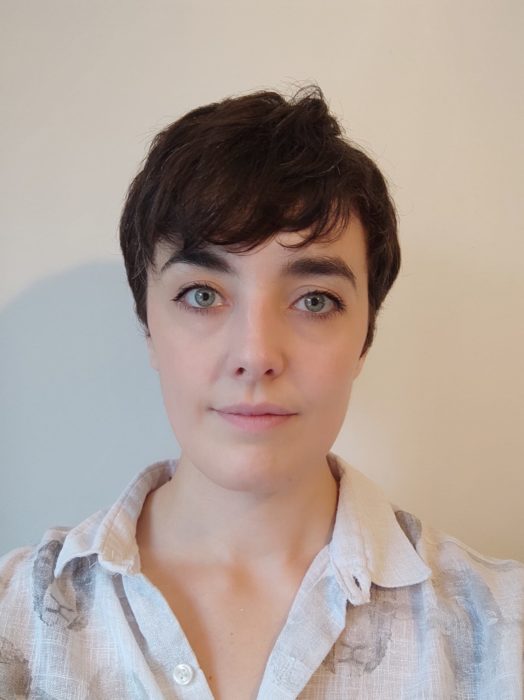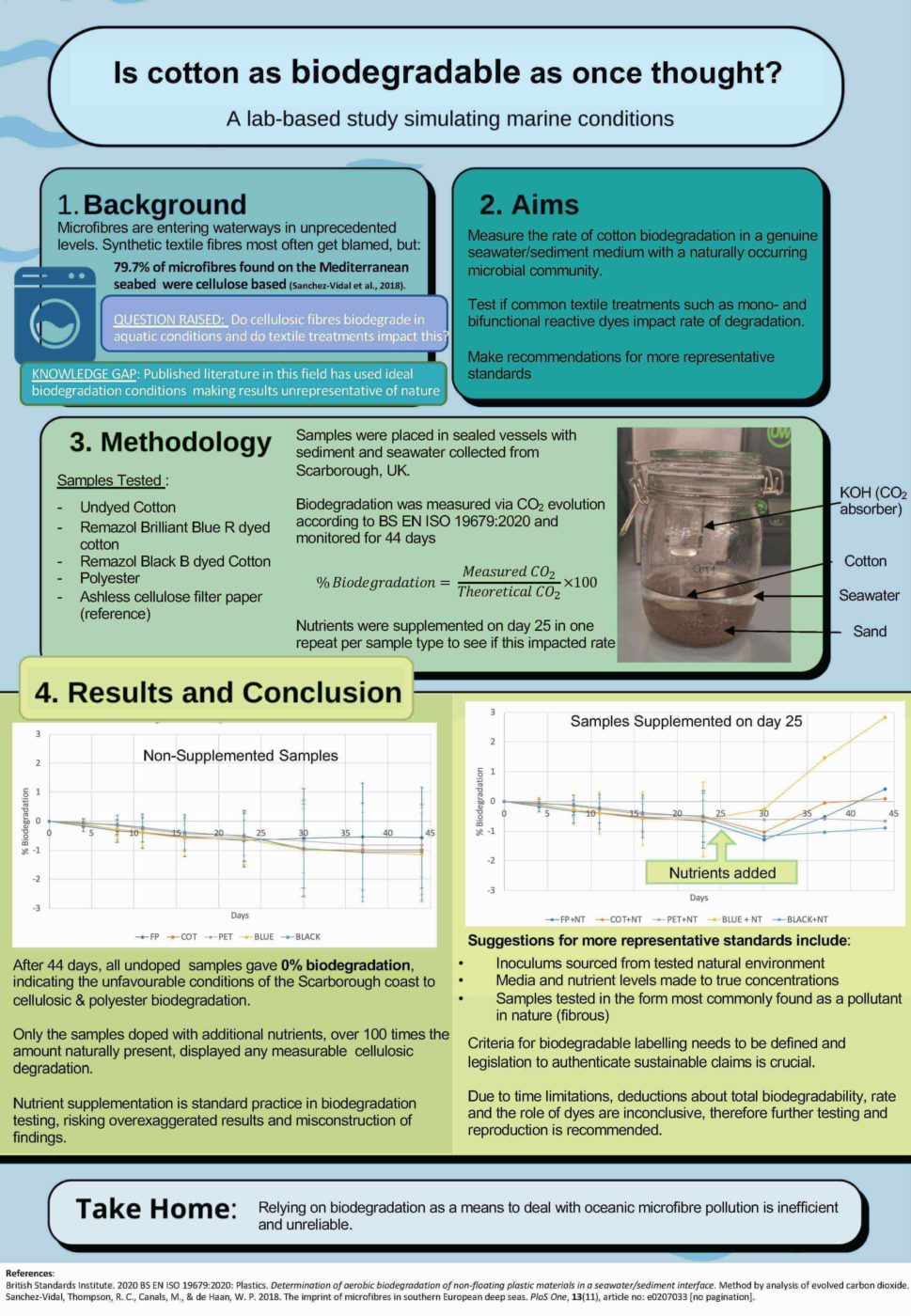2022: MSc Textile Sustainability and Innovation
Showcase
Statement
This dissertation explores the biodegradation potential of cotton fibres in natural seawater using a microbial community collected from the coast.
Abstract
Microfibres are being released into the environment at unprecedented levels. Historically, focus has been on synthetic sources of microfibres as natural fibres are presumed to biodegrade. In spite of this, cellulosic fibres have been found in abundance (80-90%) in certain oceanic environments calling into question their biodegradable credentials and whether textile processing impacts this. Existing standards and literature use methodologies for testing biodegradation that provide optimum conditions and therefore results do not reflect what happens in the real world. In this work, seawater and sediment were collected from the Yorkshire coast and used as a natural inoculum and medium for measuring biodegradation in laboratory conditions. Untreated cotton and cotton dyed with a mono- and bifunctional dye were measured for marine biodegradation via CO2 evolution over 44 days. Results were compared to an ashless cellulose reference sample and polyester as a negative control. After 44 days of testing all samples had achieved 0% biodegradation, indicating that the seawater and sediment collected did not provide ideal biodegrading conditions. Only after the biodegradation flasks were doped with nutrients over 100 times that of the natural concentration according to ASTM D6691 did a small level of degradation occur in the 44 day timeframe. This study demonstrates the need for a review of current biodegradation testing methods in order to provide results that are applicable to natural settings. Moreover, criteria for defining textile products as ‘biodegradable’ must be created in order to prevent greenwashing.



